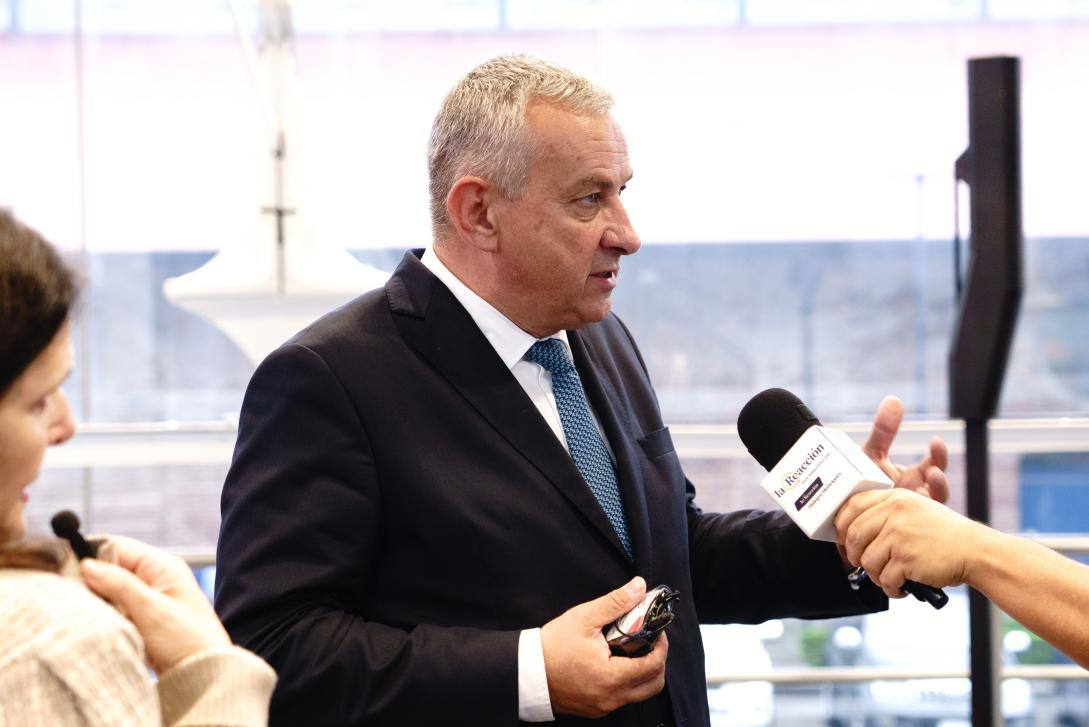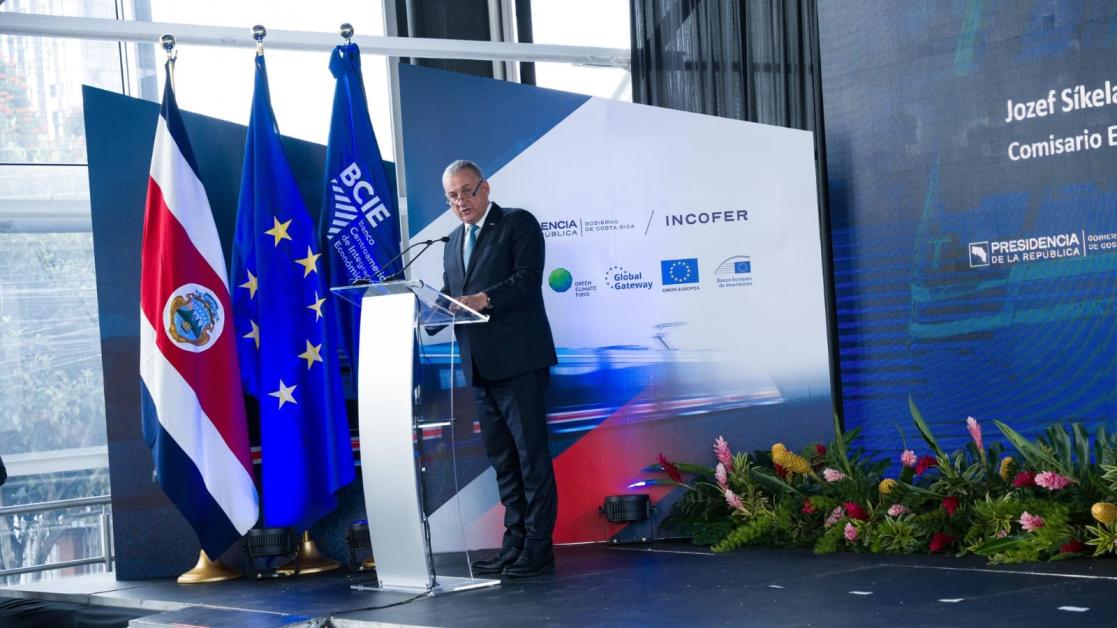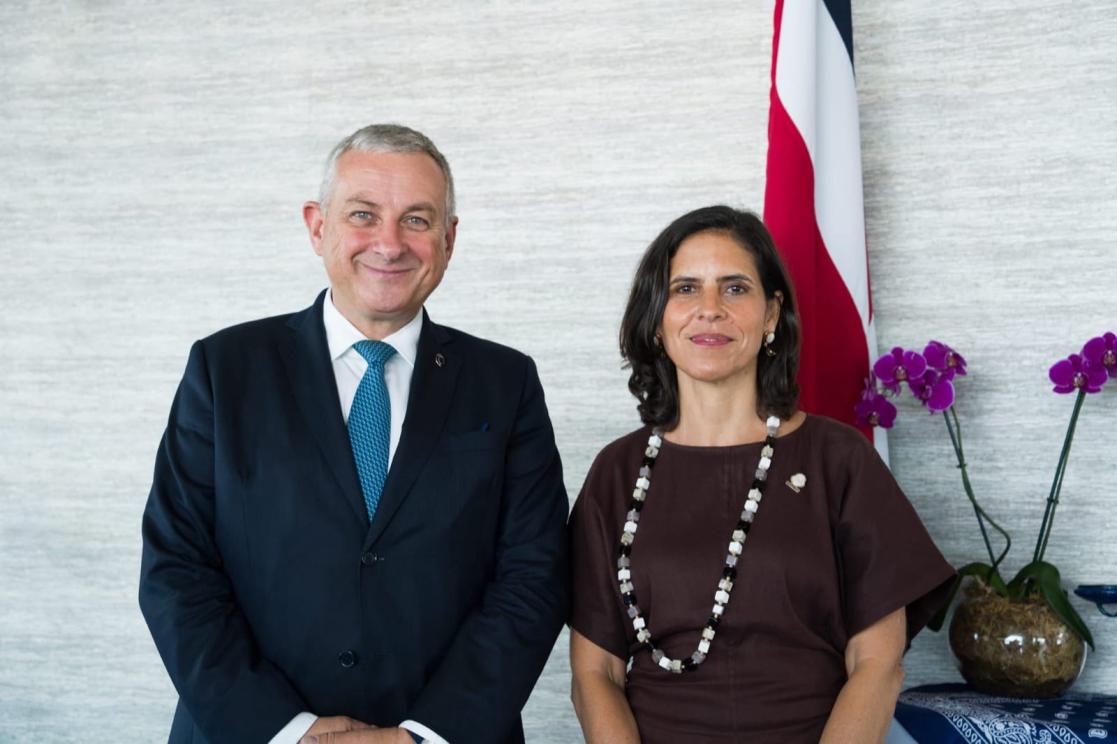Commissioner Síkela’s visit to Costa Rica strengthens EU support for sustainable mobility, green and digital transition

European Commissioner for International Partnerships, Jozef Síkela, concluded his first official visit to Costa Rica, dedicated to strengthening the EU–Costa Rica partnership on sustainable mobility and the green, digital, and inclusive transition under the Global Gateway strategy.
Together with the President of the Republic, Rodrigo Chaves, the Commissioner presented the European Union’s comprehensive offer to deliver integrated, sustainable, and efficient transport solutions for the Greater Metropolitan Area of San José. The aim of the EU’s engagement is not only to modernise mobility infrastructure, but also to generate jobs, strengthen skills, and deliver tangible benefits to Costa Rican citizens through technology transfer, institutional cooperation, and vocational training.
This offer is mainly focused on the Electric Passenger Train project, and the signature of the US$ 250million loan from the European Investment Bank (EIB) to support this transformative initiative that will reshape mobility in San José. The project will secure fast, clean, and reliable transport for more than 100,000 daily users and over three million people in the metropolitan area. Over its lifetime, it is expected to cut 6.5 million tonnes of CO₂ emissions, helping Costa Rica achieve its climate neutrality goals. The initiative will also expand access to jobs, schools, and services, improving the daily lives of families and communities across the capital region.
EU’s comprehensive approach goes beyond the construction of new rail lines and stations. It includes the integration of electric buses, the roll-out of charging infrastructure, the introduction of digital ticketing systems, and the creation of new opportunities in skills training and battery recycling.
By supporting the full ecosystem of sustainable mobility, the EU is ensuring that the benefits of this investment will be lasting, inclusive, and closely aligned with Costa Rica’s own public policy objectives. All investments will be carried out according to the highest international standards in environmental, social, and governance matters, reflecting the values Costa Rica and the EU share.

European Union, 2025
“With this project, the European Union demonstrates that its cooperation with Costa Rica goes beyond investment. It is about building joint solutions that combine sustainability, innovation, and tangible benefits for citizens. The electric train and the electrification of transport will not only modernise mobility, but also create new jobs, open doors to new economic opportunities, and drive sustainable development that will remain and grow within the country,” said Jozef Síkela, European Commissioner for International Partnerships.
The financial architecture of the project ensures very favourable conditions for Costa Rica. The European Investment Bank (EIB), the Central American Bank for Economic Integration (CABEI), and the Green Climate Fund (GCF), Costa Rica has secured the full financing of US$800 million needed to construct, equip, and operate the new train system. The EIB is providing a loan of US$250 million, complemented by €11 million in EU technical assistance to support the development of a sustainable, low-emission, and inclusive mobility system.
“At the European Investment Bank, we support the strategic priorities of the European Union and our partner countries, such as Costa Rica, through highly competitive financing, technical assistance, and the expertise of our specialists. We also provide non-reimbursable resources to train technical teams, ensuring that our investments are guided by the highest technical, social, environmental, and economic standards,” said Joana Sarmento, European Investment Bank (EIB).
As part of his mission, the Commissioner held a meeting with the Minister of Science, Innovation, Technology and Telecommunications, Paula Bogantes, where they deepened cooperation on digital connectivity, 5G cybersecurity and innovation. This consolidated a pioneering alliance between the EU and Costa Rica, which could serve as a model for Latin America.

European Union, 2025
In a meeting with Minister of Environment and Energy Franz Tattenbach, the Commissioner discussed the progress on joint priorities in clean infrastructure, energy, climate resilience and inclusive development, reaffirming the EU’s role as a strategic partner for Costa Rica and the region.
Commissioner Síkela’s visit took place in the context of renewed political momentum between the European Union and Latin America, ahead of the upcoming CELAC–EU Summit in Santa Marta, Colombia, on 9–10 November.
Finally, the Commissioner also had the opportunity to witness examples of the protection of biodiversity and cultural heritage, areas in which the European Union actively cooperates with Costa Rica through programmes on sustainable development, conservation and the promotion of culture as a driver of social cohesion.
